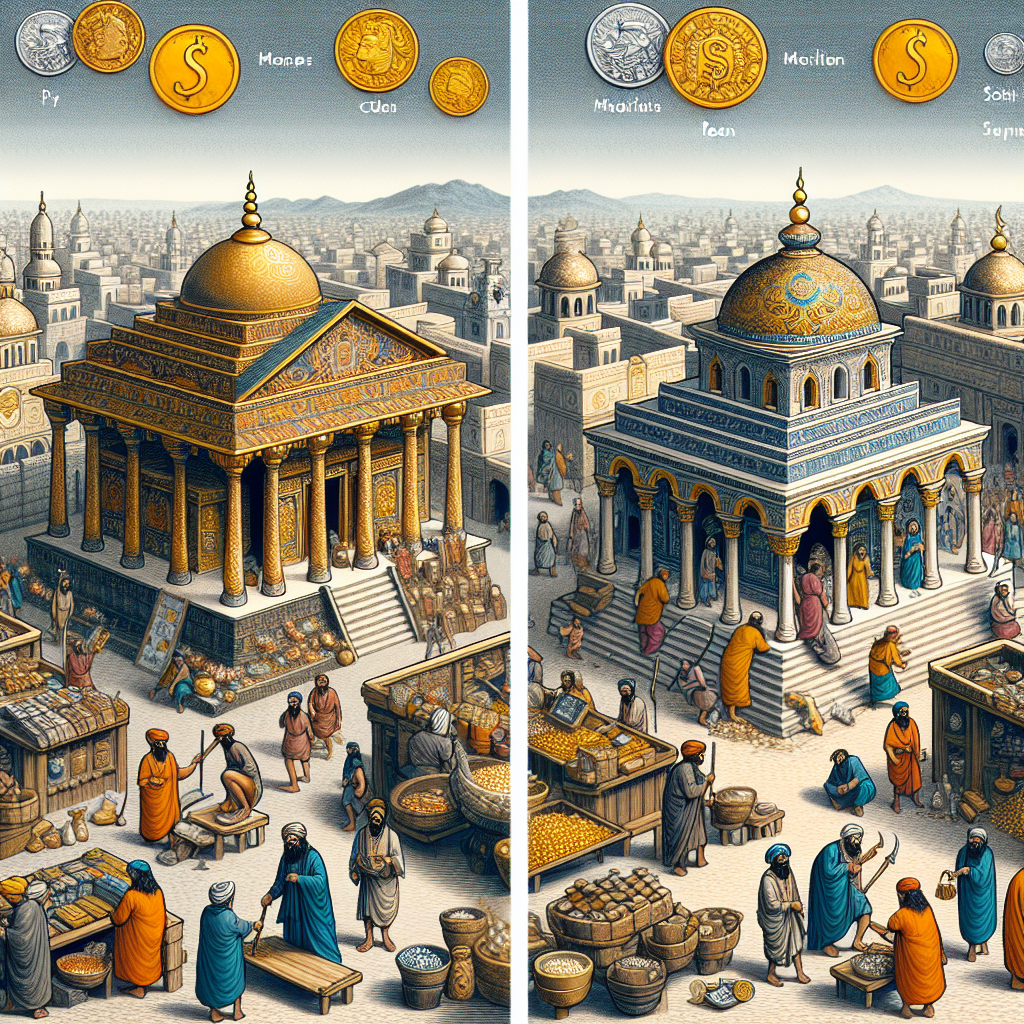Ancient Banking Systems: Exploring the Role of Temples and Merchants
When you think of a bank today, you probably imagine modern buildings, ATMs, and online banking facilities. But have you ever wondered how banking started? Surprisingly, the origins of banking can be traced back thousands of years to ancient civilizations. In this fascinating journey through time, we’ll explore how temples and merchants played crucial roles in the development of early banking systems.
The Genesis of Banking: Temples as Financial Hubs
In ancient civilizations such as Mesopotamia and Egypt, temples were not merely places of worship. They were the epicenters of economic activities, including banking. Yes, talk about divine investments!
Temples had vast storage spaces and secured vaults where pilgrims and traders stored their wealth. This marks the beginning of deposits and safekeeping services. The priests acted as early bankers, managing these deposits and ensuring their safety. Here’s a list of what made temples the go-to banking centers:
- Security: Temples were considered sacred spaces, thus offering a high level of protection against theft.
- Trust: People trusted priests to safeguard their assets due to their religious standing and perceived integrity.
- Record Keeping: Temples maintained meticulous records. Clay tablets and scrolls detailing transactions have been discovered, proving their role as early record-keepers.
Merchant Banking: The Catalyst of Trade
As trade expanded globally, merchants needed more than just a storage facility. They required comprehensive financial services, and enterprising merchants were quick to fill this gap. Think of them as the venture capitalists of their day!
Merchants introduced several innovations that would lay the foundation for modern banking practices:
- Credit Systems: Merchants extended credit lines to trusted traders, enabling the latter to purchase goods without immediate payment. This laid the groundwork for the modern loan system.
- Letters of Credit: These were essentially ancient checks. A trader in one city could present a letter of credit to a merchant in another city and receive goods without cash exchanging hands.
- Currency Exchange: As trade routes expanded, different regions used various currencies. Merchants provided currency exchange services, facilitating smoother international trade.
Interesting Case Studies: Babylonia and Ancient Greece
If we zoom in on specific cultures, Babylonia stands out. The Code of Hammurabi, one of the oldest sets of laws, includes regulations on banking activities like interest rates and loan terms, revealing a highly sophisticated banking system.
Moving west to Ancient Greece, you’ll find that private individuals began to offer banking services too. They would loan money at interest and facilitate financial transactions, making them early precursors to today’s investment banks. These “trapezitai,” as they were called, opened their “banks” on marketplace benches, adding a new dimension to the evolving banking landscape.
The Legacy of Ancient Banking Systems
Modern banking systems owe a debt of gratitude to these ancient systems. While we might not queue up at temples for our financial transactions anymore, the foundations laid by these early institutions have undeniably shaped today’s financial world.
If you’re intrigued and wish to delve deeper into the world of ancient banking, there are tons of incredible resources available. For a visual journey, check out this informative YouTube video that dives into the intricacies of ancient banking: [Ancient Banking Systems Explained](https://www.youtube.com/watch?v=dQw4w9WgXcQ).
Conclusion
The role of temples and merchants in the evolution of banking is a testament to human ingenuity and adaptability. From sacred vaults and priestly record-keepers to merchants who were the lifeblood of ancient trade, these early systems were the cornerstone of economic stability and growth. The next time you tip your hat to your online bank, remember to tip it a little lower—to the ancient civilizations that got the (money) ball rolling!
Stay tuned for more exciting historical insights!
